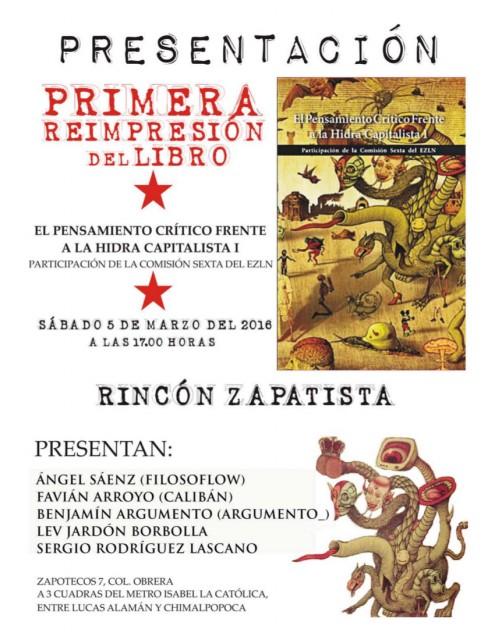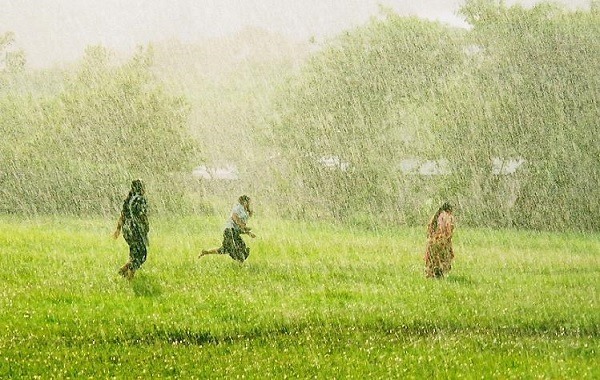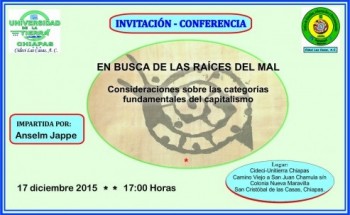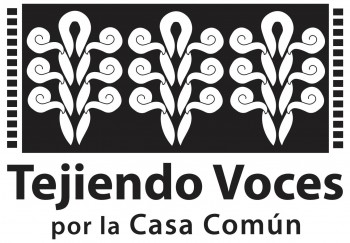
Pensamiento Crítico

Presentación de la primera reimpresión del libro “El Pensamiento Crítico Frente a la Hidra Capitalista I”. Rincón Zapatista, sábado 5 de marzo, 5pm
PRESENTACIÓN
PRIMERA REIMPRESIÓN DEL LIBRO
EL PENSAMIENTO CRÍTICO FRENTE A LA HIDRA CAPITALISTA I
PARTICIPACIÓN DE LA COMISIÓN SEXTA DEL EZLN
SÁBADO 5 DE MARZO DEL 2016 A LAS 17:00 HORAS
RINCÓN ZAPATISTA
PRESENTAN:
ÁNGEL SAENZ (FILOSOFLOW)
FAVIÁN ARROYO (CALIBÁN)
BENJAMÍN ARGUMENTO (ARGUMENTO_)
LEV JARDÓN BORBOLLA
SERGIO RODRÍGUEZ LASCANO
Zapotecos 7, Colonia Obrera
A 3 cuadras del metro Isabel La Católica
Entre Lucas Alamán y Chimalpopoca

The Arts, the Sciences, the Originary Peoples and the Basements of the World
ZAPATISTA ARMY FOR NATIONAL LIBERATION
MEXICO.
February 2016
For: Juan Villoro Ruiz:
Brother:
I’m happy to hear that the rest of your family bajo protesta[i] are well, and I appreciate your serving as messenger to send them our greetings and gifts (although I continue to think that ties, ashtrays, and vases would have been a better choice).
As I picked up my pen to continue this conversation with you, I remembered your text “Speech on the rain” (Almadía Press, 2013), written, I believe, for the stage, which I read imagining, clumsily I’m sure, the set and the gestures and movements of the actor delivering the monologue, feeling the intervention more than witnessing it. The beginning, for example, is a summary of my life: the laconic “I lost my papers!” of the first line would make for an encyclopedia if I anchor it in the calendars and geographies of this continual lapse and relapse that I have been.








